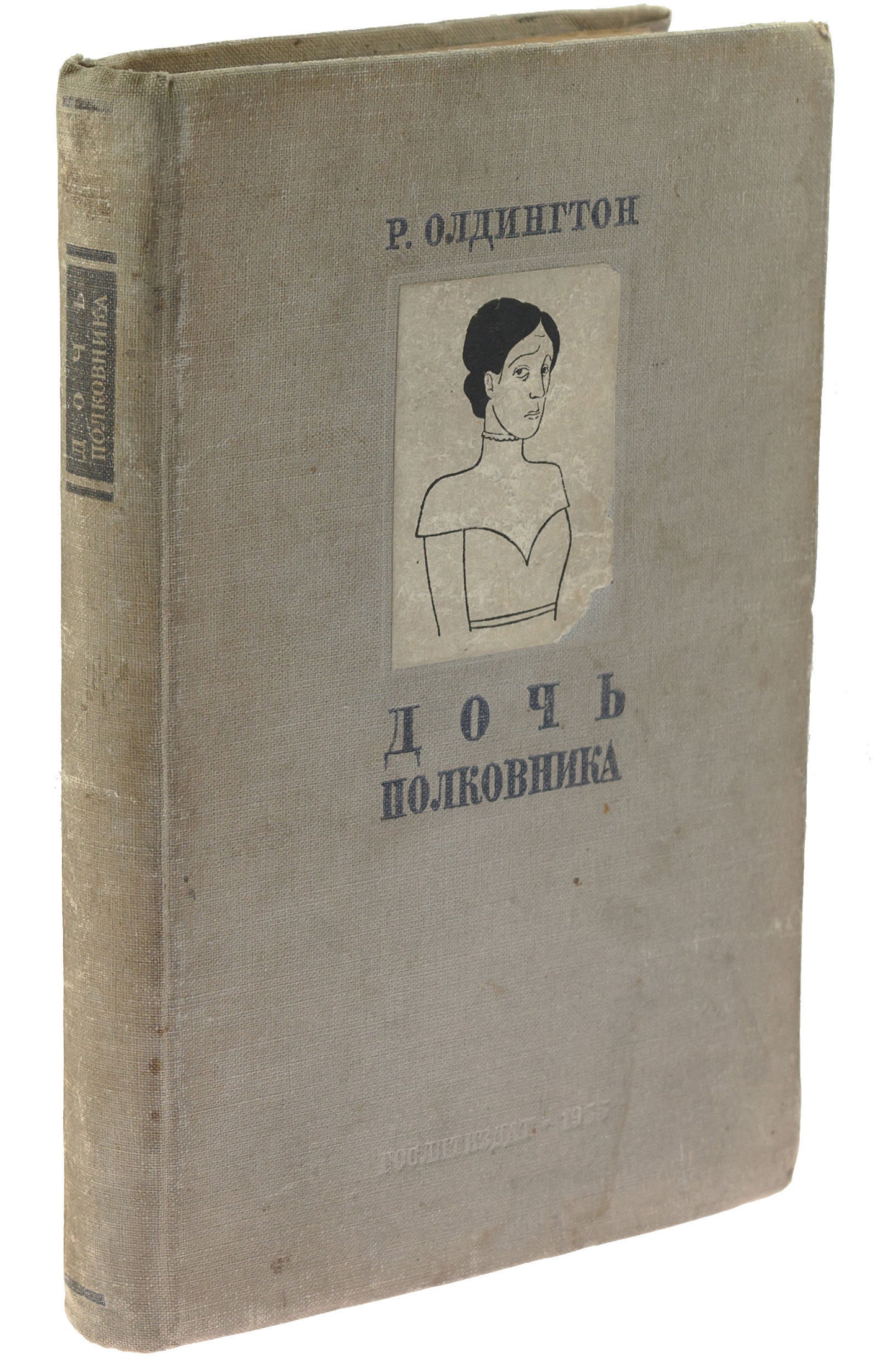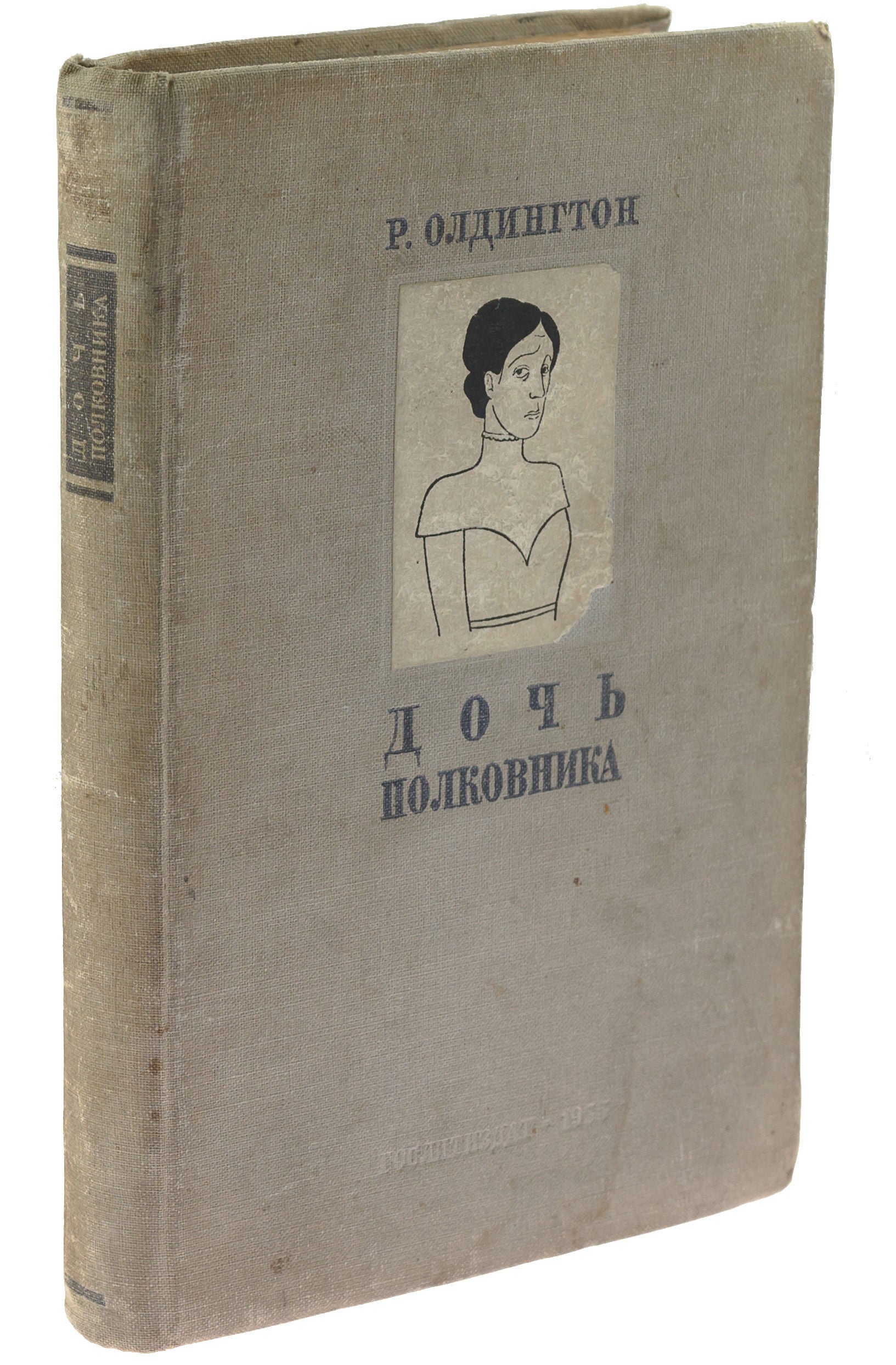Aldington, Richard
The Colonel’s Daughter. First Russian translation.
The Colonel’s Daughter. First Russian translation.
Couldn't load pickup availability
Aldington, Richard [The Colonel’s Daughter]. Doch’ Polkovnika.
Translation by Z. Vershinina.
Preface by D. Mirsky.
Book design by L. Litvak.
Moskva, Khudozhestvennaya literatura, 1935.
8vo, 291, [5] pp.
In publisher’s grey cloth.
Near good condition. Small losses of paper to cover, worn to cover and edges, stains to some pages, water-stained to some page margins.
One of 10 000 copies printed.
First Russian edition.
Second Aldington's book in Russian.
The Russian translation of 'The Colonel's Daughter' appeared three years after the Russian publication of 'Death of a Hero'.
Prince Dmitry Svyatopolk-Mirsky (1890-1939), a political and literary historian, provided a preface for the novel. He returned to the Soviet Union from exile in London in 1932 but was later arrested during the Great Purge. His name was censored and expunged from Soviet literature.
According to the preface, Aldington employed Anton Chekhov's literary techniques in the novel. For instance, in the dialogue between the main character, Georgina Smithers, and Dolly Casement, who is portrayed as 'a lesbian', Chekhov's influence is discernible. Discovering such a character trait in a Soviet book is unexpected, as lesbianism and homosexuality were taboo themes for decades in the Soviet Union. These topics were considered deviations from the sexual norm, perversions, or illnesses. Article 121 of the Soviet Criminal Code specifically criminalized male homosexuality, while women could be imprisoned or subjected to medical treatment, even though no specific statute prohibited lesbianism.
Aldington visited the USSR for three weeks as a guest of the Soviet Writers Union in 1962. 'He wrote to William Haley, telling of his extraordinary and unforgettable Russian welcome and explaining that he had discovered he was one of the best-known English authors, especially among young Russians' (Doyle, C. Richard Aldington: A Biography. Macmillan, 1989).
We couldn't trace any copy of this edition in the USA or European libraries via OCLC.


